
Hundred-year tradition
Over the past century, with its great contributions, the Vietnamese revolutionary press has affirmed its glorious traditions.
Firstly, be steadfast in political stance, absolutely loyal to the Party, the Fatherland and the people. This is the core value, the revolutionary nature of journalism and of generations of Vietnamese revolutionary journalists.
The first Congress of the Vietnam Journalists Association (May 1950) affirmed: The press contributed to the building of people's democracy and resistance war for national construction through its profession. That was the contribution of a series of revolutionary newspapers, after Thanh Nien Newspaper (1925), such as the first newspaper of the Party - Tranh Dau (August 15, 1930); the first magazine of the Party was Do Magazine (August 5, 1930); the first newspaper of the Hoa Lo communists (March 1930) was Tu Nhan Bao; Vietnam Doc Lap, Dan Chung (1938); Co Giai Phong, Cuu Quoc (1942 - 1945). These were newspapers that played a key role in propagating the revolution during the period of semi-legal and legal public activities.
During the resistance war against the US to save the country, the press in the North and the revolutionary press in the South were the main force to encourage patriotism and the determination to defeat the US invaders. News, articles, and photos from the Southern battlefield published in Nhan Dan Newspaper, People's Army, Vietnam News Agency, and broadcast on the Voice of Vietnam radio ... were a strong call, urging generations of young people to "cut through Truong Son to save the country".
After the country's reunification and joining hands to build socialism, the Vietnamese revolutionary press continued to clearly define the task of "innovating the press for the cause of national renewal and modernization". The press has provided quick, sensitive, complete and comprehensive information on domestic and international political, economic and social life; introduced the country and people of Vietnam, and the achievements of the Renovation process; set examples, introduced new factors, good people, good deeds, fought and criticized negative phenomena, corruption and wrong and hostile viewpoints, defended Marxism-Leninism, Ho Chi Minh's thought, the Party's guidelines, policies and laws of the State and served as a forum for the people. The Renovation process opened up a wide space for writers to discover, monitor and criticize society in a profound and convincing way, with clear social effects, and received strong response from the people. The press increasingly played an important role in the country's political and social life.
Second, the team of journalists always promotes the spirit of dedication and is ready to sacrifice for the revolutionary cause of fighting for national independence and building socialism.
During the resistance wars against France, the US and the battles to defend the Fatherland, more than 500 journalists fell on the battlefields. Vietnam News Agency alone had more than 250 journalist-martyrs.
Nowadays, in peacetime, many journalists do not fear hardships and dangers, going to the "hot spots" of Hoang Sa, Truong Sa, flood areas, the center of storms, places where epidemics are raging, or being present in the fierce fight against smuggling and drugs... to promptly provide the public with hot news, current images, and information that contributes to the Government's management.
Third, the press has quickly adapted to the digital age, being creative, self-renewing, proactively integrating, and preserving the national cultural identity. The post-war generation of journalists has continued the traditions, qualities, experience, and professional ethics of previous generations. Information content is increasingly rich and practical, and the forms of expression are increasingly vivid, attractive, and diverse. Young journalists are systematically trained, fundamentally and modernly, and have the ability to master new technology and good foreign languages.
Our country's press has proactively caught up with the trend of developing multimedia and multi-platform communication in the world press. Advanced journalism equipment and technology in the world are soon available in many Vietnamese press agencies, especially in the fields of television, radio, and electronic newspapers: Cameras and specialized recording equipment, Multi-function smartphones, Film editing and multimedia editing equipment, Data Journalism, Augmented reality (AR) and virtual reality (VR), Blockchain in journalism, Digital newsroom and modern integrated platform (CMS), Live streaming technology to support the press in broadcasting live events on multiple platforms, Podcasting and audio content... Some prominent technology trends in world journalism today are present in our country's journalism activities such as Audience-first & data-driven (relying on user data to decide content), MoJo (Mobile Journalism - mobile journalism)... That is not only adapting and keeping up with trends, but also demonstrating the ability of Vietnamese journalism to master digital technology.
Many newspapers have been able to cover their own costs, and some press agencies have made profits through various methods of operating in converged newsrooms and multi-platform journalism, contributing to investment in equipment, technology and modern journalism skills.
Overcoming challenges, firmly entering the new era
Currently, our country's press is facing many multi-dimensional challenges in the digital media environment, information competition and unpredictable social changes.
First, the challenge of information and reliability.
The spread of fake news and misinformation is increasingly difficult to control. The rapid development of social networks makes fake news spread quickly and is difficult to verify and prevent. Journalists face pressure to verify information in a short time and with a large amount of information.
Trust in the press is eroding. The public is “overloaded with information” and often dissatisfied with the lag between press information and social media information. Readers turn to unofficial sources or “personalized” news, unverified news.
Second, the challenge of technology and journalism skills.
Those who do not learn digital skills, multimedia journalism skills, data journalism, AI... will fall behind and lose their competitiveness in journalism. The pressure of multi-tasking, the pressure from the abuse of AI, ChatGPT... is also a challenge. Today's reporters have to write, film, take photos, edit, livestream and handle social media interactions. Therefore, it is easy to be overloaded, the quality of information decreases, and professional mistakes are made.
Third, challenges in journalism economics and journalism models.
The economic model of journalism is in crisis. Advertising revenue has shifted strongly to platforms such as Google and Facebook. Many newsrooms have had their budgets reduced, their staff reduced, and their dependence on non-journalistic sources of income. The pressure to commercialize content makes it difficult for journalists. It is easy to chase views, likes, and sensational headlines - affecting journalistic ethics.
Fourth, challenge professional ethics.
It is due to the need to balance speed and accuracy. In the era of “real-time” news, journalists are prone to making mistakes due to the race for speed. Pressure from social networks and public opinion can make journalists afraid to debate and avoid sensitive topics. Invasion of personal privacy is also a big challenge. Working in the digital age requires a higher sense of professional ethics.
Fifth, challenges from the legal environment.
Legal regulations have not kept up with the reality of digital technology development. It is difficult to distinguish the boundary between “citizen journalism” and “professional journalism”. Occupational risks are an obvious challenge. Investigative and critical reporters are vulnerable to danger, pressure, and even attacks online or in real life.
Sixth, the challenge of building public relations.
In public relations, journalists must compete with social media and KOLs. The public trusts "influencers" more than professional journalism. Journalists need to learn how to interact, listen and establish new trust.
On the other hand, changing the public’s information consumption habits is a difficult challenge to overcome. The public prefers short, fast, interactive content that emphasizes individuality. This challenge requires changing the way journalists tell stories and the way media organizations structure content.
Journalists today not only need professional skills, but also need to adapt to technology, maintain professional ethics, and have courage in a high-pressure work environment. Especially, they need to know how to build, strengthen, and maintain public trust in an era of global media competition.
Source: https://hanoimoi.vn/tu-hao-truyen-thong-ve-vang-vung-buoc-vao-ky-nguyen-moi-706326.html


![[Photo] Prime Minister Pham Minh Chinh receives the delegation of the Semiconductor Manufacturing International (SEMI)](https://vphoto.vietnam.vn/thumb/1200x675/vietnam/resource/IMAGE/2025/11/06/1762434628831_dsc-0219-jpg.webp)
![[Photo] Closing of the 14th Conference of the 13th Party Central Committee](https://vphoto.vietnam.vn/thumb/1200x675/vietnam/resource/IMAGE/2025/11/06/1762404919012_a1-bnd-5975-5183-jpg.webp)






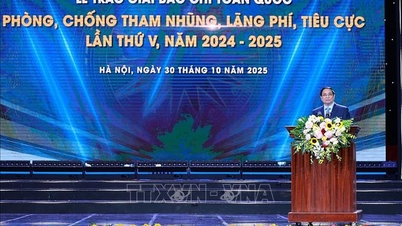

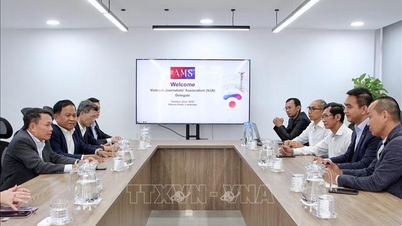
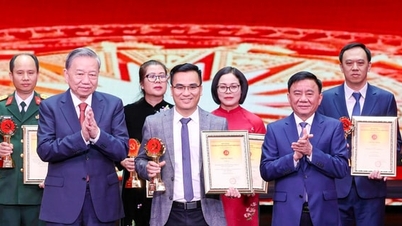
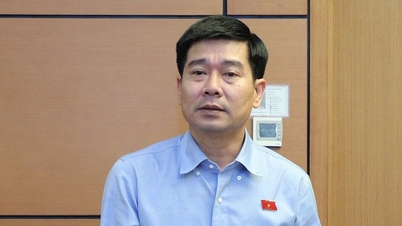

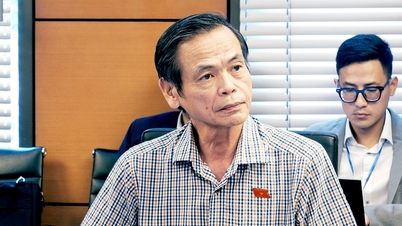
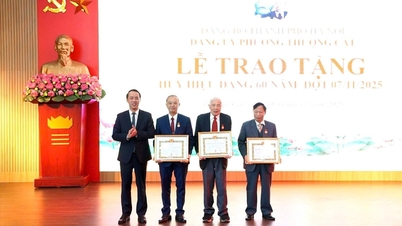

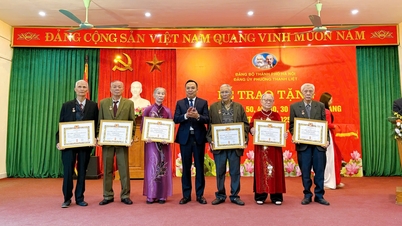
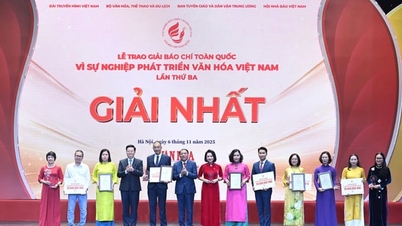








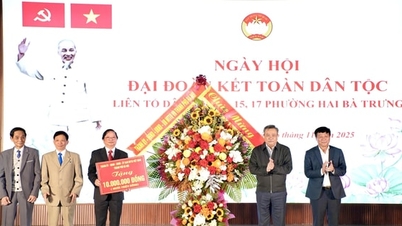

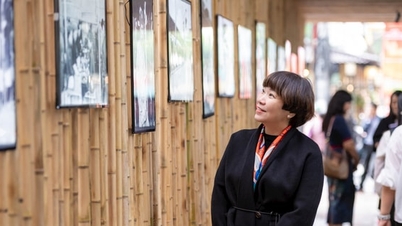
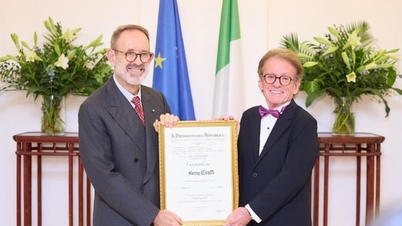
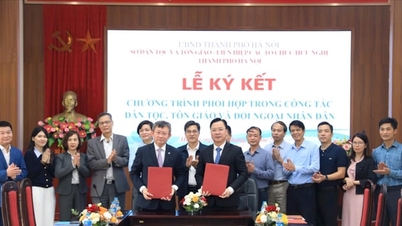




































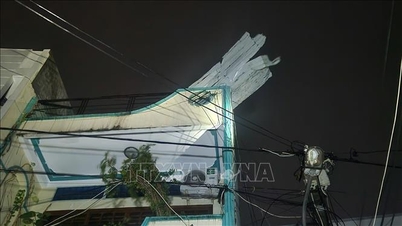
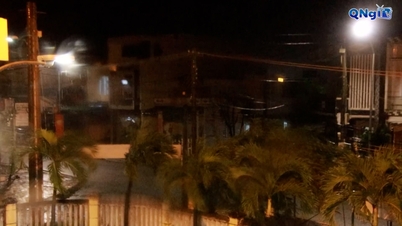

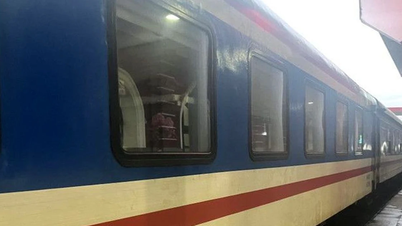

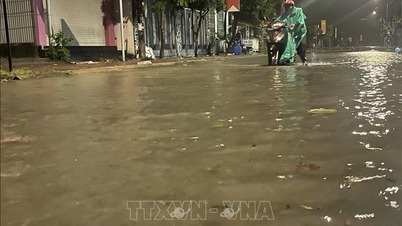

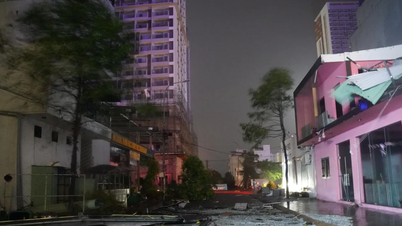










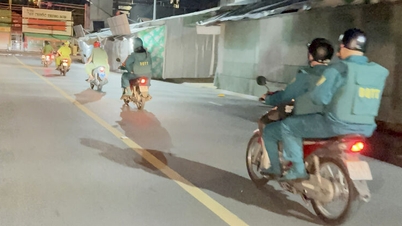

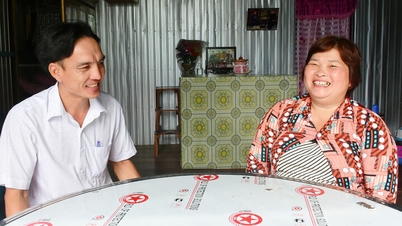
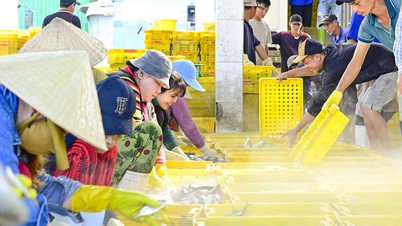
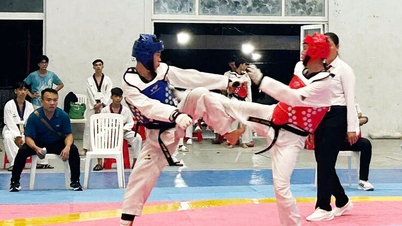
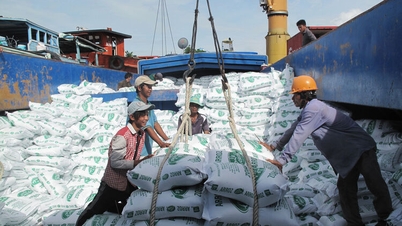
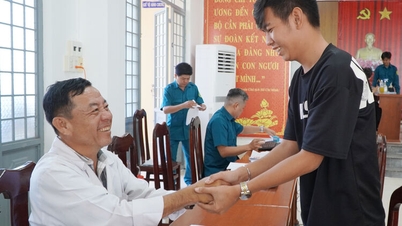












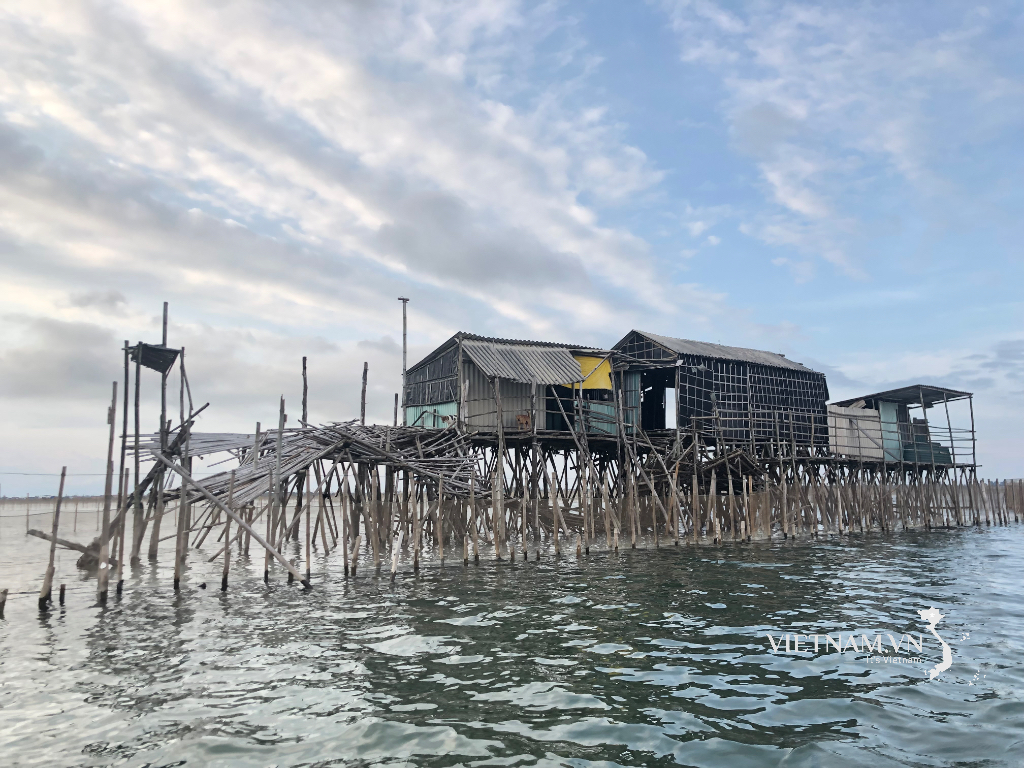


Comment (0)